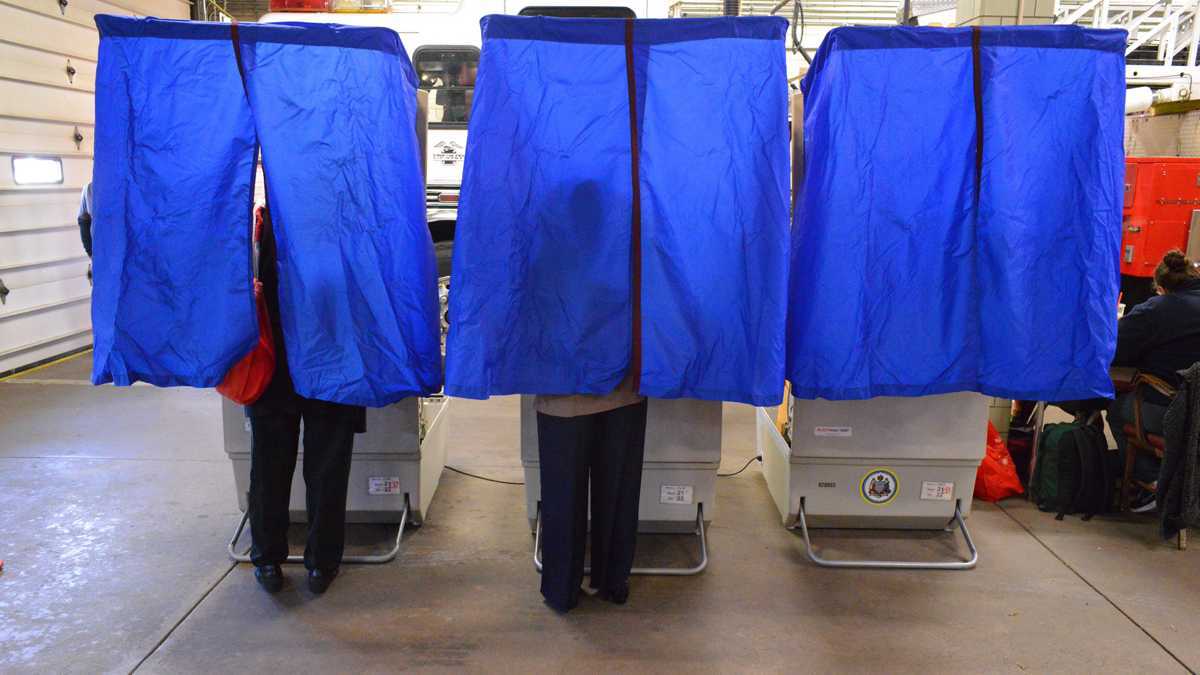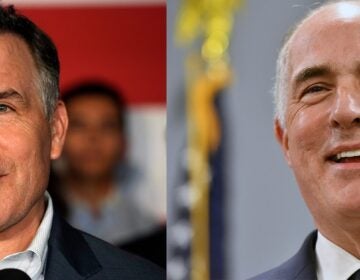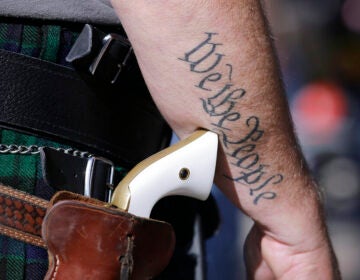Government watchdogs move to bar Philly commissioners from monitoring May primary vote
Listen
(Bas Slabbers/ for NewsWorks)
A pair of government watchdog groups in Philadelphia has filed a lawsuit with hopes of stopping the city commissioners from overseeing May’s primary election.
The suit, filed Monday as part of an ongoing effort to abolish the more than century-old office, argues that the Pennsylvania Supreme Court should compel Common Pleas Court President Judge Sheila Woods-Skipper to temporarily replace the three-member panel with judges or other “electors.”
Under the state’s election code, a state judge must order commissioners to recuse themselves if they are running for re-election. The suit maintains the same section calls for the same response if there’s a ballot question in Philadelphia that would amend the Home Rule Charter.
May’s primary ballot asks voters if the city should make changes to bidding process for contracts — contracts that could affect the city commissioners office.
The section of the election code at play specifically discusses what should happen if changes are being proposed to a county’s Home Rule Charter. Because the city of Philadelphia is the same as the county of Philadelphia, plaintiffs say state law applies to local elections.
The entire suit will unfold without oral arguments in court.
“There will be no in-person drama, but we hope and think and expect that there’s sound legal reasoning on our behalf and hope that the court sees it the same way,” said David Thornburgh, president of The Committee of Seventy, one of the suit’s plaintiffs.
Attorneys with the Public Interest Law Center are representing the suit’s plaintiffs. Legal Director Mimi McKenzie said she has asked the Supreme Court to resolve the case “very quickly.” She said the process of lining up people to temporarily replace the city commissioners could be done fairly “instantaneously” if the court grants the lawsuit’s request.
A spokesman for the Administrative Office of Pennsylvania Courts, which is representing Woods-Skipper, said the office doesn’t comment on pending litigation.
None of the commissioners responded to a request for comment.
Deputy City Commissioner Fred Voigt said Tuesday that the office, which is not named as a defendant, would respond to the suit “when it’s appropriate.”
Coalition pushes for department of elections
In May, Committee of Seventy and about a dozen other good-government and civic groups launched the Better Philadelphia Elections Committee.
The panel wants to replace the city commissioners with a department of elections led by a director, who would be appointed by the mayor.
Alison Perelman, executive director of Philadelphia 3.0, a political action committee, said a detailed review of every election since 2002 revealed that state election law would have relieved the commissioners from their election duties about 75 percent of the time.
“This obviously is not a sustainable system moving forward,” said Perelman, whose organization is also part of the lawsuit.
Thornburgh added that the statistic raises “the awkward question as to why these offices exist if every time we have a ballot amendment and every time they run for office, we keep paying them, but they don’t have to come to work.”
The commissioners each make well over $100,000 a year.
Democratic City Commissioner Lisa Deeley, along with Republican City Commissioner Al Schmidt, has said she thinks it would be a bad idea to get rid of the office.
The director “would be beholden to the appointer,” said Deeley. “Us, as elected commissioners, we’re beholden to the voters.”
Getting rid of the city commissioners would require an ordinance from City Council, the mayor’s signature and voters to agree via ballot question.
To date, no member of Council has introduced a measure to get that ball rolling.
Calls to dissolve the city commissioners office grew louder after it came to light that commissioners chairman Anthony Clark routinely didn’t show up to work or the polls.
Clark reportedly failed to vote in six straight elections starting in 2012.
Despite intense media scrutiny and public outcry, Clark was reappointed chairman in January. He has denied being absent from the job.
“Being an elected official, you get called to do different things. You’re not just sitting at your desk. This is a world of technology. I’m always in communication,” said Clark.
When it comes to his voting record, Clark has said he’s “an American, and I enjoy the rights under the Constitution that gives me the ability to exercise my rights like everyone else.”
Clark has said he will retire at the end of his current term.
WHYY is your source for fact-based, in-depth journalism and information. As a nonprofit organization, we rely on financial support from readers like you. Please give today.





